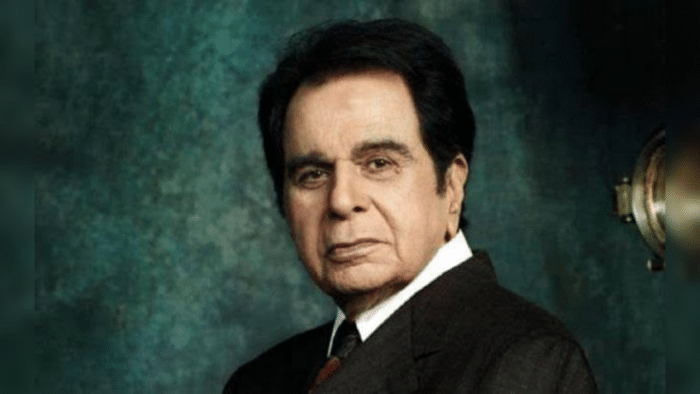
Legendary actor Dilip Kumar — one of the finest actors of Hindi cinema, popularly known as ‘Tragedy King’ – passed away in Mumbai on Wednesday. He was 98. He is survived by his wife Saira Banu.
He was admitted to a private hospital due to age-related issues and breathing problems.
Born Mohammed Yusuf Khan in 1922 in Peshawar, he was known by the screen name of Dilip Kumar once he joined Bollywood in the 1940s.
Also Read | Remembering Dilip Kumar: 7 evergreen classics that made him the 'Original King' of Hindi cinema
A recipient of the coveted Dadasaheb Phalke award, Padma Bhushan and Padma Vibhushan, he had also been a Rajya Sabha member. Yusuf Saab, as he is popularly known, had also served as Sheriff of Mumbai.
Kumar's career spans over five decades with hits like Mughal-e-Azam, Devdas, Naya Daur, and Ram Aur Shyam. His last big-screen appearance was in the 1998 film Qila.
A career over 50 years
With Dev Anand and Raj Kapoor, Kumar was one of the three big names who dominated the golden age of Indian cinema from the 1940s to the 1960s, enjoying a career spanning more than 50 years and nearly 60 films.
Nicknamed "The Tragedy King" because of his brooding good looks, tousled hair and deep voice, he played the lead in some of the Indian film industry's most commercially successful films of the period.
But he missed out on international fame after famously turning down the chance to play Sherif Ali in David Lean's 1962 classic "Lawrence of Arabia". The part went to then little known Egyptian actor Omar Sharif.
Early Life
Kumar was born Mohammed Yusuf Khan on December 11, 1922, in Peshawar, Pakistan, then part of British-ruled India. His father was a fruit merchant who took his family to India's entertainment capital in the 1930s.
But the son turned his back on the chance to take over the business when actress Devika Rani spotted him on his father's fruit stall in the then Bombay, leading to a part in his first film, "Jwar Bhata", in 1944.
Rani persuaded him to change his name, so he chose Dilip Kumar, allowing him to hide what he was doing from his disapproving father.
Although "Jwar Bhata" flopped and leading film magazines criticised his performance, Kumar was undeterred and eventually broke through with the 1946 film "Milan".
One of his most remembered roles was in the lavish historical romance "Mughal-e-Azam", based on the life of one of India's great Mughal princes.
The movie, released in 1960, was eight years in the making and cost a mind-boggling Rs 1.5 crore then, but soon became one of Bollywood's biggest-grossing films of all time.
(With AFP inputs)
Check out DH latest videos: